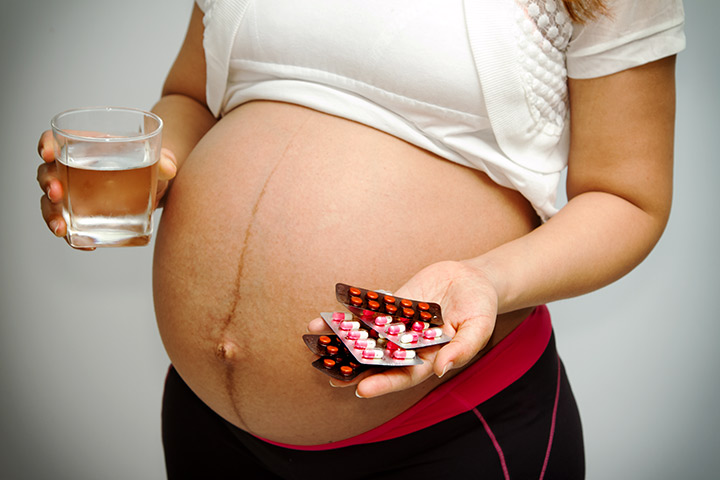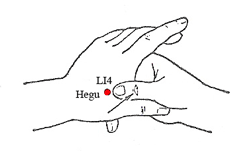 The body uses iron to create hemoglobin, a protein that is found in red blood cells and helps bring oxygen to the tissues and organs. During pregnancy, your body will produce extra blood to supply your baby as well as you. Your body requires additional iron to create this blood while supporting the rapid growth of your baby. In cases where you don’t receive enough iron in your diet, your body will start to gradually use up its iron stores, putting you at risk of anemia. Luckily, you can prevent or treat iron deficiency with iron supplements during pregnancy. Just be sure to consult your doctor.
The body uses iron to create hemoglobin, a protein that is found in red blood cells and helps bring oxygen to the tissues and organs. During pregnancy, your body will produce extra blood to supply your baby as well as you. Your body requires additional iron to create this blood while supporting the rapid growth of your baby. In cases where you don’t receive enough iron in your diet, your body will start to gradually use up its iron stores, putting you at risk of anemia. Luckily, you can prevent or treat iron deficiency with iron supplements during pregnancy. Just be sure to consult your doctor.
Should I Take Iron Tablets During Pregnancy?
The short answer is yes. Experts suggest you take about 27 mg each day during pregnancy. You will find three types of supplements for ferrous iron: ferrous gluconate, ferrous fumarate, and ferrous sulfate. Any of these is okay as long as they contain the appropriate quantity of elemental iron.
The body absorbs iron best when the stomach is empty, so try taking iron tablets during pregnancy either before bed or first thing in the morning. You can also avoid certain foods that decrease the body’s absorption of iron. Calcium and caffeine can both prevent absorption so be sure to have them at least several hours before or after your iron tablet. Take care as most prenatal supplements contain calcium. Other nutrients boost the body’s iron absorption. Since vitamin C is one of these, you can take your iron supplement with a juice rich in vitamin C.
Why Should I Take Iron Tablets During Pregnancy?
The NIH (National Institutes of Health) estimates that about 50 percent of pregnant women worldwide have an iron deficiency. If you experience iron deficiency anemia within your first two trimesters, this can double the risk that the baby will be premature and triple the risk of having a low birth weight. The majority of doctors will check for anemia during the first and third trimesters. If you have a low blood count, they may suggest you take iron tablets during pregnancy to supplement prenatal vitamins fortified with iron.
How Much Iron Should I Take During Pregnancy?
|
Target Group |
Pregnant Women |
|
Dose |
30 to 60 mg of the elemental iron |
|
Frequency |
Once per day |
|
Duration |
During the entire pregnancy, starting as soon as possible |
Those living in areas where anemia during pregnancy is a severe concern may be advised to take 60 mg of elemental iron as opposed to a number on the lower end of the range. If you are clinically diagnosed with anemia, your doctor should suggest taking 120 mg elemental iron each day plus 0.4 mg of folic acid daily until your concentration of hemoglobin returns to normal. At this point, you can go back to the standard dose of 30 to 60 mg for elemental iron. Taking an iron supplement can reduce the ability to absorb zinc from the diet so your doctor may also look at your zinc levels. The majority of prenatal vitamins contain sufficient zinc so this may not be an issue.
Side Effects of Iron Tablets During Pregnancy
1. Constipation
One of the most common side effects of iron supplements during pregnancy or even in non-pregnant people is constipation. In fact, over 10 percent of those on iron medication experience constipation. You can prevent this by eating plenty of fiber and drinking lots of fluids. Take steps to eat balanced meals and exercise regularly. Persistent or worsening constipation can require a visit to the hospital.
2. Gastrointestinal Irritation
You may also notice stomach pain or cramping while taking iron supplements, which affect over 10 percent of those on the tablets. If you notice the issue, start taking your iron supplement with a meal to relieve the symptom.
3. Nausea and Vomiting
An iron supplement may contribute to severe morning sickness. As with stomach issues, these symptoms typically ease if you take the supplement with a meal instead of when your stomach is empty. You can also reduce this side effect by sucking on a piece of hard candy or chewing gum. If your vomiting and nausea get worse or are joined by fever, contact your doctor immediately.
4. Dark Stool and Urine
More than 10 percent of those taking iron tablets during pregnancy will notice their stools darkening. It is normal to notice dark green or black stools. Around 5 percent of people also notice darker urine. Either affect is normal and will stop when you stop taking the supplement.
Iron Rich Foods for Pregnancy
You can consume iron in plant-based foods, poultry, or meat in addition to supplements. The body absorbs heme iron more easily and this is found in pork, turkey, beef and chicken. The other type, non-heme iron, is found in spinach, tofu, beans and some fortified cereals. Other sources of iron include animal liver, fortified oatmeal, raisins, lentils and oysters.
If you are a vegan or vegetarian, talk to your doctor so he can monitor your iron levels throughout your pregnancy. When you eat iron-rich foods, try to eat oranges, tomatoes or other items with vitamin C at the same time as this will help your body absorb the non-heme iron more easily.
Try not to eat foods rich in iron with whole grains, dairy, milk, tea or coffee since they reduce your body’s ability to absorb iron. If, for example, you have iron-fortified cereal for breakfast, choose orange juice instead of coffee.






